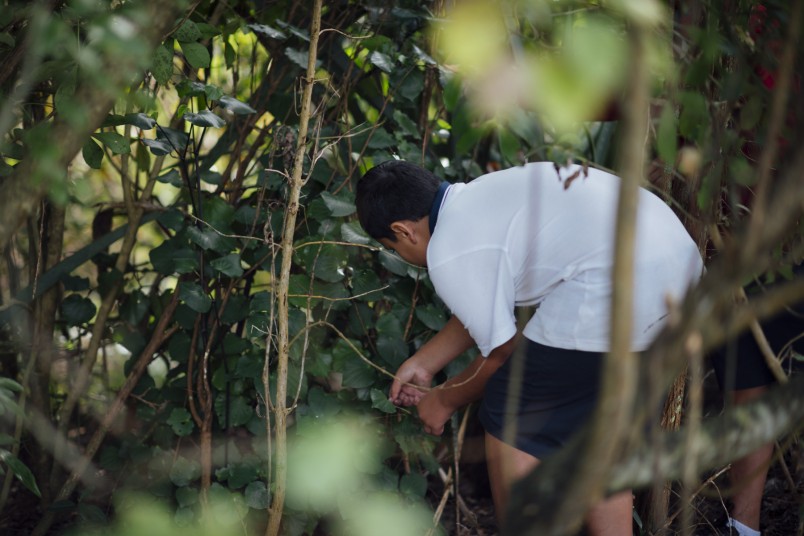Students in four mainstream West Auckland schools are on a journey to learn how Maramataka (the traditional Māori lunar calendar) relates to their everyday life. With the help of a Māori co-designed framework, Maramataka dial and journal, they’re learning to track how the lunar cycle affects their emotions, mood, energy, mahi (work) and taiao (the environment).
Maramataka translates as Māori lunar calendar. The role of the moon has guided tikanga for generations and marks significant occasions throughout the year.
“Māori have long understood the connection between people and place. Maramataka reminds us to observe our surroundings, reflect on our experiences, and connect with whānau and the taiao (environment),” explains Healthy Families Waitākere Kaiwhakahaere, Chrissy Hiraani.
“Schools are unique places where tauira (students) learn health and wellbeing practices which last a lifetime, and it’s important they see themselves and their whakapapa reflected in what they learn. Maramataka is one tool in the kete.”
Through a number of sessions, tauira are guided through the practice of Maramataka, which is underpinned in Te Ao Māori and reflects traditional Māori practices and principles that have sustained whānau for generations.
The initiative is designed to see tauira leading the way for the entire school community ̶ determining how they’d like to see Maramataka used in their school, sharing the practice amongst peers and whānau, whilst building their own identity and kōrero tuku-iho (traditional knowledge).
“Maramataka has shown us how we can use Te Ao Māori aspects every day. We didn’t get to learn this stuff, our whānau don’t know it, so now we can teach them,” reflects one of the students taking part in the initiative.
“The Maramataka initiative is part of an ongoing movement across the motu to place indigenous knowledge on an equal footing to that of western frameworks, recognising the long-held whakaaro (understanding) that good health for Māori is embedded in generational cultural knowledge and concepts of wellbeing,” says Chrissy.
“If we all as people, in our community and where we work, recognise our commitment to one another under Te Tiriti o Waitangi, all children will lead healthy, meaningful and creative lives in Aotearoa. E ai ki te korero…
Ma te rongo, ka mohio,
Ma te mohio; ka marama,
Ma te marama, ka matau,
Ma te matau ka ora
From listening comes knowledge,
From knowledge comes understanding,
From understanding comes wisdom,
From wisdom comes wellbeing
This initiative was brought to life through the collective mahi of a rōpū (group) in West Auckland, with kaimahi Māori from Healthy Families Waitākere, Toi Tangata, Hāpai te Hauora, Te Whānau o Waipareira and Te Ha Oranga.
The resources were compiled with the support of experts across the Maramataka field, including Matua Rereata, Heeni Hoterene, Reuben Taipari, Kerrie Blackmoore, Hana Maihi, Rikki Solomon and Dr Rangi Matamua.
